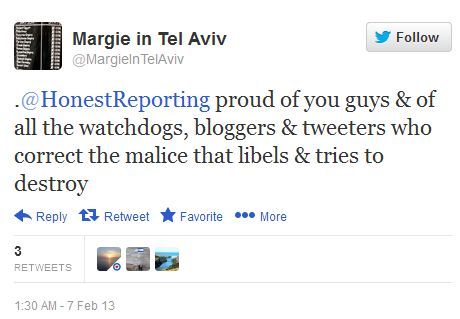 Everything you need to know about today’s coverage of Israel and the Mideast. Join the Israel Daily News Stream on Facebook.
Everything you need to know about today’s coverage of Israel and the Mideast. Join the Israel Daily News Stream on Facebook.
Today’s Top Stories
1. Hezbollah’s feeling the heat from Big Media. More on their bad press below.
2. Jordanian cartoonist Naser al Jafari is jilting a UN award “because it is “funded by a pro-Israel cartoonist.” Jafari took third place in the UN/Ranan Lurie International Political Cartoon Awards. Lurie is one of Israel’s best known cartoonists, and I’m surprised Jafari didn’t realize that when he first applied for the award. He told the Jordan Times:
“The cheque I received was signed by Lurie himself. Then I did some research about him and asked colleagues in the profession about him and discovered that he has connections with the Zionist entity [Israel],” Jafari told The Jordan Times.
“I refused to accept the award because it is funded by Lurie who is known for supporting the Zionist entity and has a history of dealing with the Zionist movement. I cannot accept an award from such a person,” the cartoonist said, adding that “Lurie has never condemned any of Israel’s practices against the Palestinians”.
Here’s Jafari’s prize-winning cartoon:
3. Tunisia rocked by assassination of leading secular opposition leader, Shokri Belaid. According to the Daily Telegraph, the Jasmine Revolution’s going down the tubes.
4. The sun’s smiling on HonestReporting. The last 24 hours have been pretty busy — in a good way.
> Financial Times Mideast Editor Apologizes for yesterday’s “ill-conceived Tweet.”
> Khulood Badawi Finally Fired From the UN a year after we exposed the false photo tweeter’s UN connection.
> HR Stars in Jerusalem Report Feature Article about media watchdogs.
Aw shucks.
Hezbollah Feels the Heat
• Hezbollah’s response to Bulgaria’s j’accuse was predictable enough. Meanwhile, the NY Times reports on the international manhunt for the Canadian and Australian nationals named by Bulgaria.
• YNet and AP rounded up some of the Lebanese reactions. The latter writes:
“Hezbollah uses the Lebanese people like sandbags, they don’t care about the people,” complained Michel Zeidan, echoing the views of others who called in to a talk radio show Wednesday.
• While all the talk’s about Hezbollah, I liked how Time‘s Karl Vick tied Bulgaria into the bigger picture of the Israel-Iran shadow war.
• Would blacklisting Hezbollah really destabilize Lebanon? Not so fast, argues the Wall St. Journal‘s Daniel Schwammenthal:
This brings us to the EU’s other worry—that listing Hezbollah could “destabilize” Lebanon. But is this sort of realpolitik really rooted in reality? It assumes that a government controlled by a terror group that has bombed itself into this position of power and is financed by and beholden to Iran, is the best government Lebanon can possibly hope for . . .
Rather, political realism and morality actually overlap here. EU sanctions would deprive the group of its European funding sources and operational freedom. Weakening Hezbollah, which is already rattled by the prospect of losing its ally in Damascus, would advance the EU’s policy goals in the Middle East: It would be a blow to Assad’s regime and would increase the chances of seeing a truly democratic Lebanon emerge, free of Hezbollah’s chokehold. It would also be a blow against Iran and the rejectionist forces that work against Israeli-Palestinian peace.
• For more commentary/analysis — especially on Hezbollah’s EU blacklist issue — see Herb Keinon (Jerusalem Post), Benjamin Weinthal (National Review), the Globe & Mail, EU Observer, Al-Arabiya, Times of Israel, and a Wall St. Journal staff-ed (click via Google News). The WSJ nails it:
The mark of a serious foreign policy is the ability to acknowledge reality, even when it’s politically inconvenient. The EU’s Hezbollah hesitation does not suggest a serious policy.


